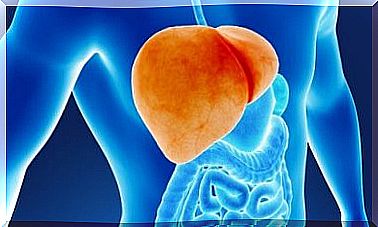Polyphenols In Coffee And Diabetes
Many studies support that certain polyphenols in coffee have anti-diabetic properties. It is therefore believed that this food can intervene positively in the regulation of glucose in the blood. Find out more in this article.

Numerous studies support that certain polyphenols found in food have anti-diabetic properties. They could therefore possibly constitute a dietetic treatment for the prevention and treatment of type 2 diabetes. Thus, we know that coffee contains polyphenols which are involved in the regulation of blood glucose.
This drink was demonized for many years. However, we now know the benefits of its usual consumption. It is therefore recommended in the diet.
Properties of coffee polyphenols
Coffee is obtained from the roasted and ground beans of the fruits of the coffee plant (the coffee tree). This is indicated in an article published in the Journal of Agricultural and Food Chemistry. It is one of the most consumed drinks in the world, and it is made up of over a thousand distinct chemicals which include:
- Amino acids and other nitrogen compounds.
- Polysaccharides and sugars.
- Triacylglycerols.
- Linoleic acid.
- Diterpenes (cafestol and kahweol). We attribute to them adverse effects on the levels of total cholesterol and LDL in the blood.
- Phenolic components with antioxidant activity (chlorogenic, caffeic, ferulic and p-coumaric acid).
- Caffeine which reduces fatigue, increases alertness, memory and the ability to concentrate.
- B-complex vitamins and minerals such as potassium, magnesium, phosphorus and iron.

Coffee consumption
Coffee is considered a very important liquid from a food point of view, as it is one of the most consumed non-alcoholic drinks in the world. For example, Finland is the largest consumer of coffee in the market, followed by Brazil which consumes 5.9 kilograms of coffee per capita.
This coffee bean drink is a blend of many functional bioactive compounds that have a significant impact on multiple health risk factors, such as:
- Arterial hypertension.
- Dyslipidemia (more specifically, low density cholesterol or LDL).
- Insulin resistance and hyperglycemia (high glucose in the blood).
- Finally, the incidence of type 2 diabetes.
Coffee polyphenols and diabetes
Diabetes is a chronic disease that results from impaired insulin secretion or from improper use of insulin by the body. It is a very widespread pathology accompanied by cardiovascular complications, retinopathy, nephropathy, neuropathy, ulcers and gangrene of the limbs.
Dietary treatments are interesting in this area and, among them, we have studied foods rich in polyphenols. It is actually suggested that the polyphenols in coffee decrease the risk of diabetes and may improve its treatment.

What are Polyphenols
Polyphenols are phytochemicals that have phenol rings according to research published in Oxidative Medicine and Cellular Longetivity. Hundreds of polyphenols are found in foods of plant origin such as:
- Vegetables (mainly broccoli, onion and squash).
- Fruits (grapes, pears, apples, red fruits).
- Legumes (soybeans).
- Drinks (wine, chocolate, coffee, beer).
From there, many foods and drugs responsible for regulating energy metabolism have been studied. Among them, a widely studied food is coffee, the scientific evidence of which indicates that its consumption helps in the prevention of chronic degenerative diseases like type 2 diabetes mellitus.
Impact of coffee polyphenols on diabetes: what do we know?
The anti-diabetic properties of multiple components of coffee have been observed. For example, in a study published in the Journal of Nutrition magazine by Battram et al in 2006, it was possible to verify the significant decrease in glucose after ingestion of decaffeinated coffee. The aim was to assess the benefits of consuming coffee without its main component, caffeine.
In addition, it turns out that chlorogenic acid (second major component of coffee), quinidines and magnesium affect glucose metabolism.

On the other hand, in a study published in Nutrients magazine, consuming 400 ml of coffee (with 2.5 mmol of chlorogenic acid per liter) was shown to increase glucose-dependent insulinotropic polypeptide (GIP) and glucagon. type 1 (GLP-1). These are the two hormones that stimulate insulin secretion.
Coffee polyphenols and cardiovascular risk factors
The high content of phenolic components present in coffee has demonstrated a powerful antioxidant capacity which protects against atherosclerosis, endothelial dysfunction and high blood pressure.
In a study published in Nutrients magazine in 2017, it was found that moderate coffee consumption (equivalent to 1-3 cups per day, which corresponds to an ingestion of 101-337 mg / day of polyphenols), had a beneficial effect on cardiovascular risk factors:
- Decreased systolic and diastolic blood pressure.
- Improved lipid profile (lower concentration of total and LDL cholesterol).
- Reduction in the concentration of homocysteine, a marker of cardiovascular risk.
Consumption of coffee polyphenols for disease prevention and treatment: the importance of future studies
To conclude, coffee is one of the most consumed drinks in the world. It turns out that it has many properties thanks to its bioactive components. Studies have focused more on the effects of caffeine and coffee polyphenols in multiple diseases.
Although the properties of the polyphenols present in many foods are known, it seems that the polyphenols in coffee regulate the mechanisms of energy metabolism. Mainly by acting on the concentration of glucose in the body.
However, human studies have yielded conflicting results. Future interventions are therefore needed to verify the theories and confirm or debate the anti-diabetic effects of dietary polyphenols.









